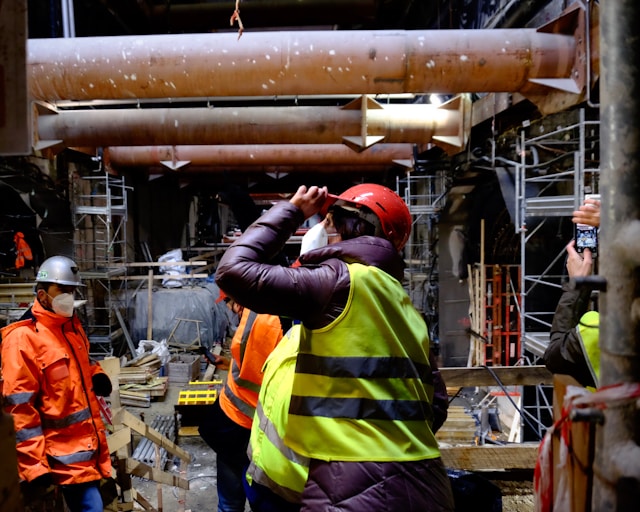
Merck & Co. (MSD) has officially begun construction on a $3 billion pharmaceutical manufacturing Centre of Excellence in Elkton, Virginia, marking one of the most significant life sciences investments in the state’s history. The milestone comes as the pharmaceutical giant accelerates its $70 billion nationwide R&D and manufacturing expansion while navigating shifting federal trade and tariff policies under the Trump administration.

The new facility, part of MSD’s long-standing Elkton campus, will be used to test and manufacture a range of undisclosed small molecule active pharmaceutical ingredients (APIs) and drug products. The project underscores MSD’s commitment to strengthening its domestic production footprint and advancing U.S.-based pharmaceutical innovation.
Virginia officials say the project could be transformative for the region’s growing life sciences sector. “MSD’s $3bn commitment to the state marks a giant leap forward for Virginia’s life sciences sector,” said Governor Glenn Youngkin, calling the project evidence of the commonwealth’s potential as an “emerging national leader in biopharmaceutical advanced manufacturing.”
According to MSD, the construction of the new site will create approximately 8,000 temporary jobs and 500 full-time positions once operations begin. The facility is expected to serve as a hub for both advanced drug development and domestic supply chain resilience, aligning with federal efforts to bring more pharmaceutical manufacturing back to U.S. soil.
The $3 billion Virginia investment is part of MSD’s larger $70 billion U.S. growth plan, announced earlier this year, which includes multiple large-scale projects across several states. Under this expansion initiative, the company is also building a $1 billion biologics center in Delaware, a $1 billion vaccine production site in North Carolina, and investing $3.5 billion to modernize its Rahway, New Jersey headquarters, bolstering both research and clinical manufacturing capacity.
These strategic moves reflect a long-term effort to onshore critical drug manufacturing capabilities and reduce dependence on international supply chains—a shift that has gained urgency amid recent global trade volatility and healthcare infrastructure challenges.
Despite its large-scale expansion, MSD is simultaneously implementing a multi-year restructuring program aimed at cutting $3 billion in operational costs by 2027. The initiative includes global workforce reductions totaling around 6,000 employees and the cancellation of a $1 billion UK expansion plan, which the company attributed to “a lack of government investment in innovative medicines.”
The restructuring reflects the company’s dual focus on domestic expansion and fiscal efficiency, balancing its ambitious growth in the U.S. with cost containment amid a competitive global pharmaceutical market.
MSD’s U.S. expansion is also unfolding against the backdrop of renewed trade tensions. President Donald Trump recently threatened to impose 100% import tariffs on branded pharmaceuticals for companies not actively investing in domestic manufacturing.
The proposed tariffs, initially slated for October 1, 2025, have not yet been enacted as negotiations continue between the administration and industry leaders. Nevertheless, the pressure has prompted several pharmaceutical manufacturers to accelerate U.S.-based projects to mitigate potential trade risks and capitalize on new federal incentives.
.jpg)
For Virginia, the MSD announcement cements the state’s status as a rising life sciences hub, building on nearly 85 years of MSD’s presence in the region. Once primarily known for its manufacturing and logistics economy, Virginia is now drawing billions in biotech and pharmaceutical investment, driven by its strategic location, skilled workforce, and research partnerships with regional universities.
Governor Youngkin said MSD’s expansion represents not only a win for the state’s economy but also a signal of growing national recognition. “This investment represents a giant leap forward,” he said, adding that Virginia is now “well positioned to lead in the next era of biopharmaceutical manufacturing.”
Other major pharmaceutical companies are following suit. AstraZeneca recently pledged $4.5 billion to build a Charlottesville manufacturing facility, which CEO Pascal Soriot described as “the largest investment in the company’s history.” The site will produce APIs for the company’s cardiovascular, metabolic disease, obesity, and oncology portfolios.
Similarly, Eli Lilly has committed $5 billion toward an API and drug product facility in Goochland County, dedicated to its bioconjugate and monoclonal antibody (mAb) portfolio. These concurrent investments collectively position Virginia as a fast-growing center for biopharmaceutical manufacturing and advanced drug innovation.
Industry experts suggest that the convergence of federal incentives, corporate investment, and state-level support is creating an ideal environment for life sciences growth in the Southeastern U.S.
For construction and engineering firms, this trend represents a surge of new opportunities—ranging from cleanroom design and bioprocessing infrastructure to energy-efficient utilities and logistics facilities. The MSD site in Elkton, in particular, is expected to set new standards for sustainability and advanced automation in pharmaceutical manufacturing.
With multiple megaprojects now underway, Virginia is fast becoming a magnet for skilled labor, biotech suppliers, and construction partners, reshaping its economy for decades to come.
In summary, MSD’s groundbreaking in Elkton marks more than just a corporate milestone—it reflects a broader shift toward domestic resilience, scientific advancement, and regional revitalization. The $3 billion project exemplifies how large-scale manufacturing investments can drive innovation, job creation, and long-term economic growth in America’s evolving life sciences landscape.
Originally reported by Annabel Kartal Allen in Pharmaceutical Technology